About VA Central Ohio Healthcare System – Marion CBOC
Marion VA Clinic is a community focused integrated healthcare facility in Marion, Ohio. They offer outpatient behavioral healthcare including substance use therapy. They also offer social support services and nutritional education which can help your long term struggle with addiction. Marion VA Clinic can be a great choice if you’re seeking a low cost clinic to treat substance use issues. They accept Medicaid, Medicare and Tricare. They also offer primary care , vision care and specialized services for veteran victims of trauma.
Recovery Focused Group and Individual Therapy
You can receive focused care in this clinic if you’re struggling with substance use issues. They offer tailored and confidential outpatient care that equips you with the resources to overcome substance use. You’ll undergo clinical evaluation during intake to help their team better understand your history with drugs and alcohol.
Based on that, they’ll create a tailored care plan which will guide your treatment support. They mainly offer individual and group therapy. This focuses on helping you address the underlying psychological issues fueling your substance use. You’ll also gain new coping tools that encourage a sober lifestyle and prevent relapse.
Medication Assisted Recovery for Opioids
If you’re struggling with opioid use then this clinic will help you recover through medication assisted treatment. This technique uses FDA approved meds to help you curb cravings and manage painful withdrawal symptoms.
It is paired with counseling so that you can also address the psychological symptoms of your opioid issues. The technique is known to deliver well rounded care that enables you to regain complete control of your life.
Nutrition Education and Dietary Care
Nutritional counseling and dietary care is a unique service you can access in this clinic. This program is all about making sure you’re getting a balanced meal which I strongly believe will benefit your recovery. Your body needs to repair itself after years of damage from substance use.
Proper nutrition helps restore organ function, rebuilds your immune system and improves brain chemistry to stabilize your mood. It gives you steady energy and reduces fatigue and mental fog which can make recovery harder. A healthy diet can even curb cravings by balancing blood sugar levels. This encourages sobriety and helps you maintain a healthier lifestyle. The clinic provides tailored nutritional education via individual, group and telehealth sessions.
Psychosocial Support Services to Ensure Lasting Recovery
As you move forward in recovery you’ll need every possible social support service to keep you on track and avoid relapsing. A secured job can help you build a routine, stay financially independent and give you something to look forward to. Safe housing can provide stability and create a supportive space where you can live independently. This clinic’s social work department can help you access these recovery support services. They can help with transportation, legal aid and even financial assistance.
Veteran Addiction Recovery near Downtown Marion
This clinic is situated on Delaware Avenue and it’s less than three miles from downtown Marion. The US Route 23 directly links the clinic to the nearby cities of Delaware and Columbus. The state route OH4 serves veterans coming to the clinic driving from Upper Sandusky. Marion Area Transit operates local bus routes with stops along Delaware Avenue. The DAV vans assist veterans with transportation. It’s worth contacting the clinic to know if that’s an option that’ll work for you.
The clinic is within 2.5 miles of the Harding Memorial. This is a historic garden honoring President Warren G. Harding. This can be a good reference point if you’re navigating to the clinic for the first time. The Marion Tallgrass Trail is also within six miles of the clinic. This offers an avenue to unwind, recharge and enjoy nature’s calming effects after a busy day at the clinic.
Latest Reviews
Rehab Score
Gallery
Other Forms of Payment
Self-pay involves paying for treatment out of your own pocket. You can use savings or credit, get a personal loan, or receive help from family and friends to fund your treatment. If you don't have insurance or your insurance plan doesn't cover a specific program, self-pay can help ensure you still get the care you need.
Financial aid can take many forms. Centers may have grants or scholarships available to clients who meet eligibility requirements. Programs that receive SAMHSA grants may have financial aid available for those who need treatment as well. Grants and scholarships can help you pai for treatment without having to repay.
Military members, veterans, and eligible dependents have access to specific insurance programs that help them get the care they need. TRICARE and VA insurance can help you access low cost or no cost addiction and mental health treatment. Programs that accept military insurance often have targeted treatment focused on the unique challenges military members, veterans, and their families face.
Private insurance refers to any kind of healthcare coverage that isn't from the state or federal government. This includes individual and family plans offered by an employer or purchased from the Insurance Marketplace. Every plan will have different requirements and out of pocket costs so be sure to get the full details before you start treatment.
Addiction Treatments
Levels of Care
Outpatient Programs (OP) are for those seeking mental rehab or drug rehab, but who also stay at home every night. The main difference between outpatient treatment (OP) and intensive outpatient treatment (IOP) lies in the amount of hours the patient spends at the facility. Most of the time an outpatient program is designed for someone who has completed an inpatient stay and is looking to continue their growth in recovery. Outpatient is not meant to be the starting point, it is commonly referred to as aftercare.
Completing a drug or alcohol rehab program shouldn't spell the end of substance abuse treatment. Aftercare involves making a sustainable plan for recovery, including ongoing support. This can include sober living arrangements like halfway houses, career counseling, and setting a patient up with community programs like Alcoholics Anonymous (AA) or Narcotics Anonymous (NA).
Treatments
Mental health rehabs focus on helping individuals recover from mental illnesses like bipolar disorder, clinical depression, anxiety disorders, schizophrenia, and more. Mental health professionals at these facilities are trained to understand and treat mental health issues, both in individual and group settings.
Programs
Adult rehab programs include therapies tailored to each client's specific needs, goals, and recovery progress. They are tailored to the specific challenges adult clients may face, including family and work pressures and commitments. From inpatient and residential treatment to various levels of outpatient services, there are many options available. Some facilities also help adults work through co-occurring conditions, like anxiety, that can accompany addiction.
Serving in the military is both mentally and physically challenging, and can result in trauma that persists even after combat ends. Military programs are tailored to the specific and often complex needs of active duty personnel, veterans, and military families. Clients often access these programs through the U.S. Department of Veterans Affairs (VA).
Young adulthood can be an exciting, yet difficult, time of transition. Individuals in their late teens to mid-20s face unique stressors related to school, jobs, families, and social circles, which can lead to a rise in substance use. Rehab centers with dedicated young adult programs will include activities and amenities that cater to this age group, with an emphasis on specialized counseling, peer socialization, and ongoing aftercare.
Clinical Services
Cognitive Behavioral Therapy (CBT) is a therapy modality that focuses on the relationship between one's thoughts, feelings, and behaviors. It is used to establish and allow for healthy responses to thoughts and feelings (instead of unhealthy responses, like using drugs or alcohol). CBT has been proven effective for recovering addicts of all kinds, and is used to strengthen a patient's own self-awareness and ability to self-regulate. CBT allows individuals to monitor their own emotional state, become more adept at communicating with others, and manage stress without needing to engage in substance abuse.
Whether a marriage or other committed relationship, an intimate partnership is one of the most important aspects of a person's life. Drug and alcohol addiction affects both members of a couple in deep and meaningful ways, as does rehab and recovery. Couples therapy and other couples-focused treatment programs are significant parts of exploring triggers of addiction, as well as learning how to build healthy patterns to support ongoing sobriety.
Research clearly demonstrates that recovery is far more successful and sustainable when loved ones like family members participate in rehab and substance abuse treatment. Genetic factors may be at play when it comes to drug and alcohol addiction, as well as mental health issues. Family dynamics often play a critical role in addiction triggers, and if properly educated, family members can be a strong source of support when it comes to rehabilitation.
Group therapy is any therapeutic work that happens in a group (not one-on-one). There are a number of different group therapy modalities, including support groups, experiential therapy, psycho-education, and more. Group therapy involves treatment as well as processing interaction between group members.
In individual therapy, a patient meets one-on-one with a trained psychologist or counselor. Therapy is a pivotal part of effective substance abuse treatment, as it often covers root causes of addiction, including challenges faced by the patient in their social, family, and work/school life.
Life skills trainings involve all the skills a person must have in order to function successfully in the world. These include time management, career guidance, money management, and effective communication. Truly successful addiction recovery is based on the ability to not only live substance-free, but to thrive. Life skills teaches the practical necessities of functioning in society, which sets clients up for success in life, and therefore sobriety.
Motivational Interviewing (MI) is a clinical approach to helping people with substance abuse issues and other conditions shift behavior in positive ways. It is more goal-oriented than traditional psychotherapy, as MI counselors directly attempt to get clients to consider making behavioral change (rather than wait for them to come to conclusions themselves). Its primary purpose is to resolve ambivalence and help clients become able to make healthy choices freely.
Nicotine Replacement Therapy (NRT) is a way of getting nicotine into the bloodstream without smoking. It uses products that supply low doses of nicotine to help people stop smoking. The goal of therapy is to cut down on cravings for nicotine and ease the symptoms of nicotine withdrawal.
Rational Behavior Therapy (RBT) is a form of cognitive behavioral therapy meant to be short-term and comprehensive. It was intended to help clients become more self-sufficent and move forward without the need for expensive, ongoing therapy. It includes an emotional self-help method called “rational self-counseling,” the purpose of which is to give clients all the skills needed to handle future emotional issues by themselves, or with significantly less professional help.
Trauma therapy addresses traumatic incidents from a client's past that are likely affecting their present-day experience. Trauma is often one of the primary triggers and potential causes of addiction, and can stem from child sexual abuse, domestic violence, having a parent with a mental illness, losing one or both parents at a young age, teenage or adult sexual assault, or any number of other factors. The purpose of trauma therapy is to allow a patient to process trauma and move through and past it, with the help of trained and compassionate mental health professionals.
Amenities
-
Residential Setting
-
Private Setting
Staff & Accreditations
Staff
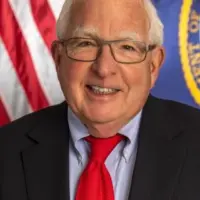
Marc Cooperman, M.D
Medical Center Director
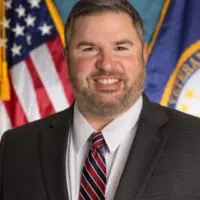
Christopher Yingling
Associate Director
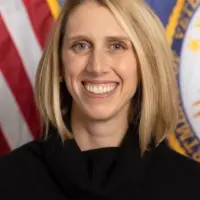
Allison Arensman, MD, MBA
Chief of Staff
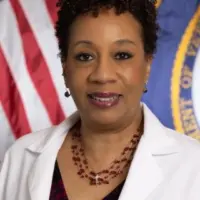
Susan Williams, MSN, RN, AMB-BC
Associate Director for Patient Care Services
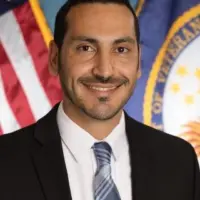
Daniel Pignatelli
Assistant Director
Accreditations

The Joint Commission, formerly known as JCAHO, is a nonprofit organization that accredits rehab organizations and programs. Founded in 1951, the Joint Commision's mission is to improve the quality of patient care and demonstrating the quality of patient care.
Joint Commission Accreditation: Yes
Accreditation Number: 60
Contact Information
1203 Delaware Avenue
Corporate Center #2
Marion, OH 43302
